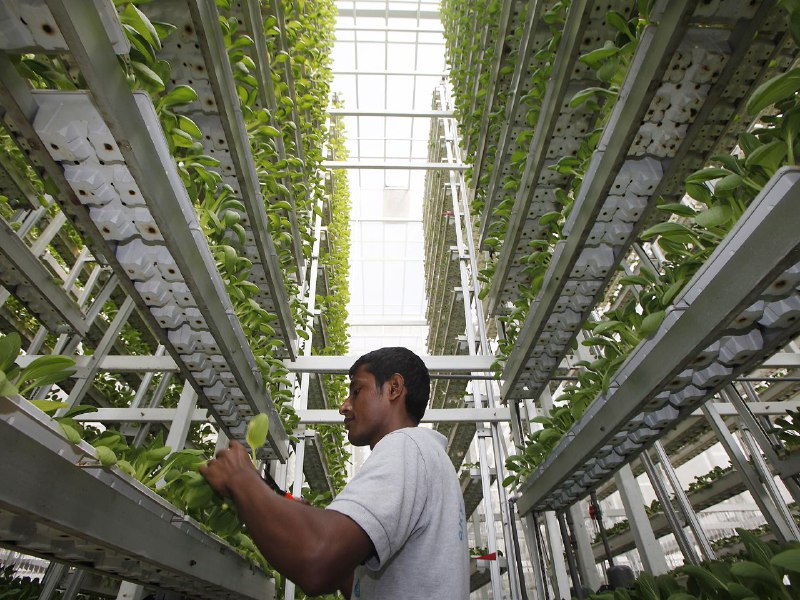Introduction
The most successful business projects tend to satisfy the fundamental needs of society. This is because an enterprise important for society will always have the support of consumers because, for them, such projects become something personal and are associated with their civic feelings. One of these needs concerns the issues of migrants and their integration into society. The problem of migrants’ treatment and allocation primarily involves a complex economic situation that precedes their settlement and the intricacies of the social adaptation process (Hoffer, 2019).
These complications are caused by the lack of infrastructure in areas populated mainly by migrants and matters that are important for human psychology, such as personal leisure items. I propose a solution to these issues in a private initiative, “GreenTower,” which is to create low-cost and semi-automated vertical farming systems in areas inhabited by predominantly unprotected migrant families.

Main body
The “GreenTower” initiative offers a solution to several problems faced by migrants after moving to large cities in a country they are unfamiliar with. First of all, this solves the obstacle of migrants’ lack of a sense of attachment to the place in which they start a new life. Most of them live in densely populated urban downtowns, in small apartments. Unlike private landowners, or people living in the suburbs within connected neighborhoods, apartment residents do not have a sense of closeness to their home and often also to their neighbors. However, my project aims to solve this problem by placing vertical farms within such urban areas and leasing them to migrants and vulnerable groups of the population.
Thus, these groups of the population will communicate more closely due to the proximity of their farm “plots” to each other. Next, they will create communities for mutual assistance. Such a step would connect the migrant population with citizens of a country, stabilizing the social relationship between both groups. Most importantly, the development of green flowering gardens, the fruits of which would belong to each farmer person alone, can significantly increase their morale and personal confidence. Such an initiative will greatly enhance the degree of integration of migrants into a new society.
It is worth talking in more detail about vertical farms as a phenomenon. They were invented relatively long ago but came to a state of payback and high efficiency recently. Further, the niche of vertical farms as a means of industrial cultivation of crops already exists. However, it did not have time to spread much among societies and nowadays remains unpopular among a broad circle of entrepreneurs and businessmen. Vertical farms allow people to grow plants with tremendous efficiency and reserve food surpluses for personal use. At the same time, it qualitatively differs from well-known hydroponics by many factors that can be conditionally reduced to one point: it is just soil and available modern technologies.
It is also vital that vertical farms use LED lighting, which is colossally cheaper than UV lamps (Bayer AG, n.d., Rising to the sustainability challenge). Such accessibility, ease of use, and the possibility of placing the equipment inside any building complex make the farms profitable. Migrants can receive large incomes while renting affordable to their estates. Cheapness, efficiency, and the possibility of accommodation even in densely populated areas of large cities make vertical farms convenient for migrants to start a business with a medium income.

The essence of the project “Green Tower” is relatively easy to grasp and present for potential funders. The main task in completing the goal of integrating migrated populations with inhabitants of an area is to provide them with essential skills for further work.
Fortunately, vertical farming does not require specific knowledge of natural sciences except for basic information about the processes involved in the production. Accordingly, the first step is to allow special education for migrants, which could be done, for example, online. Next, creating a platform where communities engaged in farming could share information and valuable resources for finding equipment and areas for their enterprises. Further, it is essential to support these communities so that they can effortlessly work with locals. Consequently, the mass use of vertical farms would enhance the level of integration in a country and its internal production rates.
Conclusion
To conclude, the recent issue of uncontrollable migration and difficulties of foreign population integration could be solved through vertical farming use. However, there are limits to the idea; precisely, its scope includes predominantly industrial societies. This factor is relevant due to the access to technologies that vary from country to country. In the future, the idea might spread not only just in one country but internationally. With the help of information technologies and support from national authorities, it could take the important place of a country’s infrastructure. Moreover, this can elevate the level of educatedness among migrants or at least increase their possibilities to enter a university. Thus, a country would have more professionals as well as enhanced infrastructure.
References
Bayer AG. (n.d.). Rising to the sustainability challenge. Web.
Bayer AG. (n.d.). Vertical farming [Photograph]. Web.
Hoffer, F. (2019). The real problems of migration and work and how to solve them. Social Europe. Web.
Su, E. & The World Financial Review. (2018). A worker harvests fresh produce from a tower at sky greens vertical farm in Singapore [Photograph]. Web.